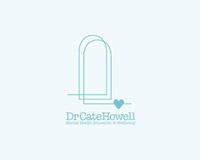Understanding INTUITION
“The best and most beautiful things in the world cannot be seen or even touched. They must be felt with the heart.” Helen Keller
My recent book, ‘Intuition, Unlock the power’, explores the “who, what, when, where, how and why” of intuition. Intuition is something that most people have experienced. Some people refer to intuition as a gut feeling, their inner voice or sixth sense. It is defined as an instinctive knowledge without conscious reasoning, or knowing without knowing how we know!
Philosophers and scientists have endeavored to understand intuition for thousands of years, and many of the great spiritual leaders have talked about intuition. Psychotherapist, Carl Jung (1875-1961), classified our experience into thinking, feeling, sensation and intuition, and he described intuition as being like a ‘compass’ in life.
Modern psychology and neuroscience has identified that the non-dominant part of the brain (your right brain if you are right handed!) is the site of visual, creative, empathic and intuitive functions. Siegel, a neuro-psychiatrist, says that intuition also involves the input of nerve networks around the heart and gut, so that our body’s wisdom is a neural mechanism by which we process deep ways of knowing.
Science tells us that intuition is active in our sleep, which is why sometimes we go to bed pondering over a problem and wake up with the answer in mind, and that we can learn new skills or enhance skills such as intuition when we are being mindful or fully present in the moment. Mindfulness stems from Eastern approaches and has been adopted in recent years by Western psychology. The brain is always changing and it is through mindful activity that it does change.
There is literature in nursing, teaching, business, education and counseling that tells us that intuition is a valuable tool in all of these fields. In fact, we often move between rational and intuitive thinking when making decisions, and in caring for patients, a holistic approach to decision-making is possible. Intuition is used all over the world in teaching, and research in education has found that it’s usefulness relates to the teachers own sense of wellbeing. Business literature has highlighted that we also use our intuition when we are in a positive mood, and that journaling can enhance it.
Evidence and experience suggest that we all have intuitive abilities, and that we can enhance our intuitive skills through awareness and practice. We receive intuitive information through our senses (vision, hearing, movement, touch, smell) and bodily feelings, or we may have intuitive thoughts or hunches. It is important to identify how you receive intuitive information.
We can learn to be more intuitive via seven steps, namely:
1. Making space for intuition in our lives; for example, through decluttering our schedules, our minds and old thinking patterns, and practising self-care.
2. Connecting with yourself and others; through being aware of what you value in life, connecting with your body, mind and spirit, focussing on balance, enjoying social connections and utilizing empathy.
3. Practising meditation and mindfulness; as inner stillness is important to connecting with your intuition.
4. Enhancing your creativity; as creativity and intuition enhance each other. Examples of creative activities are telling stories, dancing, reading and writing or playing music.
5. Accessing you unconscious mind; intuition is related to the unconscious mind and we can access it through meditation, as well as understanding signs and symbols and our dreams.
6. Tapping into positivity; we know that positive emotions open us up to intuition, and we can cultivate these through kindness, gratitude and positive thinking.
7. Applying intuition in your everyday and working life; for example, through listening to your body, practicing more self-awareness, using meditation and applying intuition in decision-making.
Importantly, at the centre of these steps is trusting your heart-felt knowledge. We need to learn to trust and not disregard the intuitive information coming to us. For example, our body will often tell us is we are comfortable with a particular place, person or choice in life. The seven steps will also help you feel more connected with yourself and others, and with your own values, passions and purpose.
Note too that there are various phenomena related to intuition, such as synchronicity or coincidence, and premonitions or an intuition about the future. Synchronicity needn’t always be spectacularly life changing. It may just be that when we need to deal with a certain life situation, we hear something that is spot on or read an article that gives us some guidance. Premonitions can occur in the awake state or in dreams.
Intuition has been used for healing in many traditions, and some medical discoveries have occurred because of intuition. Many present day health professionals often talk about using their intuition in practice. This may involve listening to your gut-feelings or thoughts that come into your mind when working with a client. The notion of loving kindness being an essential part of healing is important, and connecting with this can help us be more intuitive.
Much of intuition is about tuning into and acting from your heart. Sometimes accepting that the mind has natural and often untapped abilities, including intuition, involves taking a leap of faith. When you do this, you may well experience an increased sense of peace, purpose in life and joy. So start working with your intuition today!
References:
Howell, C. (2013). Intuition Unlock the power! Exisle, NSW.
Siegel, D.J. (2007). The Mindful Brain: Reflection and attunement in the cultivation of wellbeing. Norton & Company. New York City.

